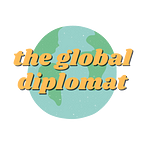Alt-Right, Northward
By Lara Choy
Edited by: Alia Mufti
Image: Jerk IX / Flickr
As terrible stories seem to spill out from the United States into Canadian news cycles, we console ourselves with “at least we’re not the States.” We seem to be saying that even more recently, but the smug tone and sense of cultural superiority remains the same. Sure, we have our own problems, but in comparison to the fascist politicians, endless COVID-19 outbreaks, and attempts to overturn the election, well, Canada looks pretty great. But appearances can be deceiving…
Canadians have long prided ourselves on not being like our southern neighbours (with a “u,” please). Where they’re flashy, we’re understated. They’re blustering, we’re too polite. They’re the melting pot, we’re more of a cultural mosaic. An exaggeration, surely, but on the world stage, we seem to be somewhere between Britain’s child and America’s more well-behaved sibling. And although we watch the news of the Capitol insurrection, laugh at the ridiculous pictures of protesters, and worry on behalf of our American friends, few of us think something like that could ever happen in Canada. We’re better than that, right? However, alt-right ideologies have a presence here, and while not obvious at first glance, it is very much alive on the Internet.
The term “alt-right” is frequently thrown around on the news in reference to certain people without any clear definitions. We know who they aren’t: men’s rights activists, free speech advocates, or conservative party members like Republicans in the U.S. — although there is some intersection. This leaves a motley crew united by a general rejection of mainstream conservatism and support of “traditional western civilization” (a dog whistle for white nationalism). Though there are a number of physical groups that would be considered alt-right, their largest presence is online. It’s not always particularly hidden either, as members communicate on subreddits, Twitter feeds, and increasingly, tailor-made apps. Despite what many Canadians would like to believe, the people around them are not immune to such ideologies.
Although they have not always been referred to as “alt-right” (a term coined in 2009, according to Merriam-Webster), right-wing extremist groups are not new to Canada by any means. Often, they don’t attract as much attention as their American counterparts due to their smaller stage and generally less extreme acts. In spite of that, there have been many Canadian cases of hate-motivated activity and violence. This can range from Ku Klux Klan activity throughout the 1920s-1930s, to prominent Holocaust deniers, to anti-Muslim incidents in the wake of 9/11, including the murder of six worshippers at a Quebec City mosque in 2017 by a white man known for his Islamaphobic and far-right views. The names of contemporary alt-right groups may be familiar from the news: Proud Boys (founded by a Canadian man), Three Percenters, Oath Keepers… Much of their media coverage centers around their inflammatory rallies, in which many members advocate against the government and marginalized groups; criminal activity is less frequent, however, many members of alt-right-affiliated organizations have threatened violence and even attempted to bomb and kidnap prominent politicians. Although these groups and events caused shock and sadness in their communities, they often did not prompt serious investigations.
If there is one reason why right-wing extremism seems to fly under the radar, it’s because Al-Qaeda and ISIS are easier targets. Foreign terrorist groups generally seem more urgent and insidious than homegrown violence or domestic terrorism, even if the latter poses more of a threat in reality. Even law enforcement and the news media seem to underestimate the impact and potential of the alt-right in Canada. Alarmingly, the demographics of such organizations are shifting beyond the stereotypical image of disaffected young men. That image may have been accurate in the 1980s and 1990s, but recent years have seen older, more educated, and more female membership (despite the anti-woman sentiment commonly espoused in alt-right circles). As these groups gain popularity and appeal with more diverse audiences, their influence grows.
Traditionally, Canada’s legislation against hate speech and white surpremacist movements has been regarded as ineffectual, but the tide is turning. After seeing extremist activity both here and abroad, the federal government is taking greater action. Recently, Canadian MPs moved to designate the Proud Boys (many members of whom took part in the January 6th violence at the Capitol) as a terrorist organization. More legislation in this sphere is on the horizon. Despite this positive movement, it’s impossible to defeat their rise until we educate ourselves and show alt-right organizations that violence and hate is not welcome in Canada — whether it’s through protests, petitions, or simply letting your voice be heard.
Many Canadians look at the state of America and worry about its effect on Canada — in fact, it’s become a bit of a cliche in political discourse to say that living next door to the U.S. is, to borrow a phrase from Pierre Trudeau, like “sleeping with an elephant.” When alt-right terrorist and extremist activity rears its ugly head here, we blame American influences without considering that the trouble could be coming from inside the house. As extremist activity grows more active in real life, it becomes harder for Canadians to maintain ignorance about its presence at home. And if we’re unwilling to recognize the problem, there’s no way to stop its spread. To answer the question, are we really better than Americans?, well, it all depends on how we take action and stand against hate.
— — —
Originally published on the original Global Diplomat page on February 13th, 2021. Interested in other opinions by youth between 18–29? Give us a visit.
